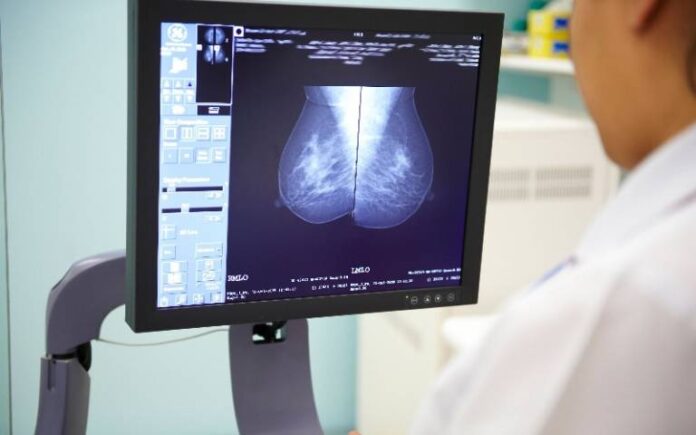A pioneering breast cancer therapy which requires just one shot of radiotherapy rather than conventional weeks-long treatment, has proven to be as effective for most women in treating the disease.
TARGIT-IORT is delivered immediately after lumpectomy (tumour removal), via a small ball-shaped device placed inside the breast, directly where the cancer had been. The single-dose treatment lasts for around 20 to 30 minutes and replaces the need for extra hospital visits, benefiting both patient safety and well-being.
Conventional external beam radiotherapy (EBRT) is delivered from outside the body via a radiotherapy machine (linear accelerator), and consists of a daily treatment session (known as fractions) to the whole breast, over a period between three to six weeks. Each of these treatments is given over a few minutes, but requires 15 to 30 hospital visits, which could be a significant distance from where the patient lives.
To establish TARGIT-IORT’s long-term effectiveness, 2,298 women aged 45 or over with invasive ductal carcinoma (breast cancer) and a tumour of up to 3.5cm in size, were randomly assigned to receive either TARGIT-IORT or the traditional EBRT.
This large clinical trial, designed and run from UCL, involved 32 hospitals and medical centres in ten countries: the UK, France, Germany, Italy, Norway, Poland, Switzerland, United States, Canada and Australia. The trial started in March 2000, which has enabled researchers to publish these long-term results.
The findings show that with TARGIT-IORT therapy, eight out of every ten patients had no need for any further post-operative radiotherapy treatments. There was also no detriment to survival and no increase in the likelihood of the cancer returning.
In addition, with TARGIT-IORT, significantly fewer women died from causes other than breast cancer. Previous studies have shown that TARGIT-IORT has fewer radiation-related side effects compared with conventional whole breast radiotherapy, with less pain, better cosmetic outcome and a better quality of life.
Lead author, Professor Jayant Vaidya, (Professor of Surgery and Oncology, UCL Surgery & Interventional Science), said: “With TARGIT-IORT, women can have their surgery and radiation treatment for breast cancer all at the same time.
“This reduces the amount of time spent in hospital and enables women to recover more quickly, meaning they can get back to their lives more quickly.
“With publication of these very positive long-term results, it is now clear that this treatment should be made much more freely available. It should be accessible to healthcare providers and discussed with patients when surgery for breast cancer is being planned.”







